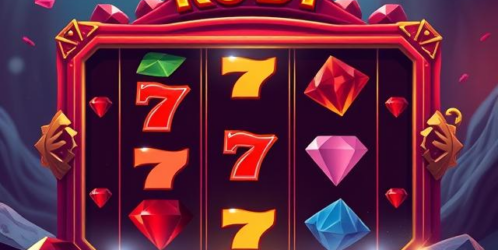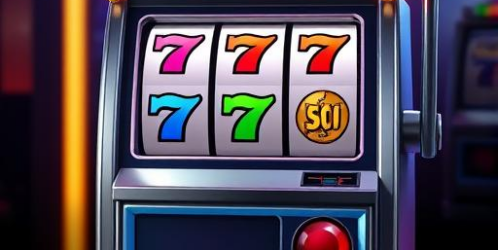Table of Contents
- Introduction
- Key Takeaways
- What is a Random Number Generator?
- New Zealand’s Regulatory Framework
- Testing and Certification Process
- Common Myths vs. Reality
- Physical vs. Online Slots: RNG Differences
- Player Protection and Responsible Gambling
- Conclusion and Resources
Introduction
Random Number Generators (RNGs) are the core technology ensuring fair play in New Zealand’s slot machines. Under the Gambling Act 2003, all electronic gaming machines must use certified RNG technology that meets Department of Internal Affairs (DIA) standards. This guide explains how these systems work, how they’re regulated, and why this matters for players.
Last updated: March 2025 | Fact-checked by the editorial team
Key Takeaways
- RNGs use complex algorithms to generate unpredictable outcome of each spin in slot results.
- All NZ gaming machines use certified RNG systems monitored by the DIA
- Independent laboratories test and certify all slot machine RNGs in New Zealand
- Each spin is completely independent; machines have no “memory” of previous results
- NZ players spent $895 million on gaming machines in 2022/2023
What is a Slot Machine RNG (Random Number Generator)?
A slot RNG or slot Random Number Generator is a computational algorithm producing number sequences that cannot be predicted better than by random chance. These systems determine which symbols appear on slot machine reels after each spin.
How Slot Machine RNGs Work
Most New Zealand slot machines use pseudo-random number generators (PRNGs), which create sequences based on an initial “seed” value. This seed constantly changes based on timing and other variables.
“The mathematics behind modern RNGs systems is exceptionally complex. A properly certified New Zealand gaming machine generates numbers from billions of possibilities every second, making pattern recognition mathematically impossible.” — Dr. Michael Johnson, University of Auckland
The RNG process follows these steps:
- The algorithm generates a random number (often between 1 and several billion)
- This number is mapped to positions on the virtual reels
- The corresponding symbols determine the outcome
- This process happens independently for each reel
True random number generators (TRNGs), which draw true randomness from physical phenomena like atmospheric noise, are less common but sometimes used in online platforms for enhanced randomness.
New Zealand’s Regulatory Framework
The Department of Internal Affairs oversees all gambling in New Zealand, with specific focus on slot machine RNG technology under the Gambling Act 2003.
NZ Technical Requirements
Under New Zealand regulations, all slot machine RNG systems must:
- Produce statistically random outcomes
- Operate continuously between gameplay
- Use appropriate scaling methods
- Resist outside manipulation
- Pass rigorous statistical testing
“New Zealand’s technical standards ensure that every certified machine delivers truly unpredictable outcomes that cannot be manipulated. Our requirements align with international best practices while addressing specific concerns relevant to New Zealand’s gambling environment.” — Technical Director, Department of Internal Affairs
Monitoring and Compliance
The DIA’s Electronic Monitoring System (EMS) tracks approximately 15,490 electronic slot gaming machines across 1,068 venues nationwide [1]. This system provides:
- Real-time compliance monitoring
- Data collection on machine performance
- Transparency about operational standards
- Detection of unauthorized modifications
New Zealand’s approach compares favorably with international standards, particularly in its emphasis on RNG integrity testing over simply regulating return-to-player percentages.
Testing and Certification Process
Before entering the New Zealand market, every slot machine’s RNG system undergoes extensive testing by DIA-accredited independent laboratories, primarily Gaming Laboratories International (GLI) and BMM Testlabs.
Certification Steps
The comprehensive testing process includes:
- Mathematical evaluation of the RNG algorithm
- Source code reviews for vulnerabilities
- Statistical testing of millions of simulated outcomes
- Hardware testing of physical components
- Verification against NZ-specific requirements
“Our testing protocols for RNG systems in New Zealand are among the most rigorous globally. Every aspect of the random number generation process must be audited and verified before a machine can enter the market.” — Senior Certification Engineer, Gaming Laboratories International
According to 2023 DIA reports, testing laboratories rejected 4.2% of new gaming machine submissions due to RNG non-compliance [2]. After certification, machines remain subject to ongoing compliance checks, with 316 technical inspections conducted in 2023.
Common Myths vs. Reality
Despite rigorous standards, misconceptions about slot machine RNGs are crucial for fair gameplay standards. Understanding the reality helps players make informed decisions.
| Myth | Reality |
| Machines run in cycles and are “due” for wins | Each spin is completely independent; the RNG has no memory of past results |
| Casinos adjust machines during busy periods | In NZ, this is impossible under DIA regulations and would trigger EMS alerts |
| Players can time spins to improve odds | RNGs generate hundreds of numbers per second; timing has no impact on outcomes |
| Patterns can predict future results | Any perceived patterns are coincidental, not predictive |
| Payout percentages work in short cycles | RTP percentages (85-92% in NZ) are achieved over millions of spins, not short sessions |
“This fundamentally misunderstands RNG technology – each spin is completely independent of all previous outcomes. The RNG in a slot machine has no memory of past results and cannot be ‘due’ to produce a specific outcome.” — Casino Manager, SkyCity Auckland
Physical vs. Online Slots: RNG Differences
While the fundamental principles remain the same, RNG implementation differs between land-based and online modern slot machines in New Zealand.
Land-Based Machines
Physical slot machines in New Zealand typically feature:
- Hardware-based RNG systems combining software with physical components
- Direct monitoring through the DIA’s Electronic Monitoring System
- SkyCity Auckland alone houses approximately 1,877 such machines [3]
- Tamper-evident seals and locked cabinets for physical security
Online Platforms
They operate from overseas jurisdictions (NZ doesn’t permit local online casinos). They use server-based RNG systems serving multiple players simultaneously. These online casinos often seek certification from international bodies like eCOGRA and iTech Labs and employ encryption and regular third-party audits for security.
Key Differences
Seeding methods: Physical slot machines use hardware events like electromagnetic noise, while casino websites and slot machines incorporate network timing and cryptographic techniques
Security approaches: Physical security for land-based machines vs. digital security for online platforms
Regulatory oversight: Direct DIA monitoring for physical machines vs. international certification for online platforms
Player Protection and Responsible Gambling
Understanding RNG technology contributes to player protection by promoting informed gambling decisions.
Key Statistics
New Zealanders spent NZ$895 million on gaming machines outside casinos in 2022/2023 [4]
Approximately 0.4% of New Zealand adults (about 16,000 people) are classified as problem gamblers [5]
43% of New Zealand adults participated in some form of gambling activity according to the 2022 Health and Lifestyles Survey [6]
“Fairness in RNG systems is essential for maintaining player trust. However, even perfectly fair systems can still contribute to gambling harm if players don’t understand the odds or develop misconceptions about how these machines work.” — Andree Froude, Communications Director, Problem Gambling Foundation of New Zealand
Support Resources
New Zealand players can access several support services.
- Gambling Helpline: 0800 654 655
- Problem Gambling Foundation services
- Salvation Army Oasis centers
- Māori-focused support through Te Rangihaeata Oranga
- Self-exclusion programs at physical venues and online platforms
Conclusion and Resources
Random Number Generators provide the technological foundation for fair gambling on slot machines throughout New Zealand. The country’s robust regulatory framework ensures these systems deliver truly random outcomes through independent testing and ongoing monitoring.
Understanding how RNGs work helps dispel common myths about slot machines and promotes informed gambling decisions. While no strategy can overcome the house edge, knowledge about this technology contributes to safer, more enjoyable play.
References
[1] Department of Internal Affairs Annual Report 2023
[2] DIA Electronic Gaming Machine Compliance Report 2023
[3] SkyCity Entertainment Group Corporate Report 2023
[4] NZ Gambling Commission Expenditure Report 2022/2023
[5] Problem Gambling Foundation of New Zealand Statistics 2023
[6] Health Promotion Agency’s Health and Lifestyles Survey 2022


